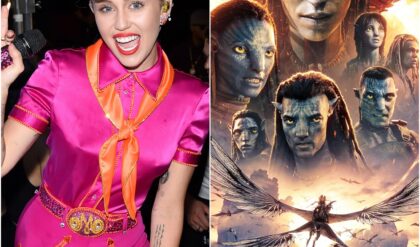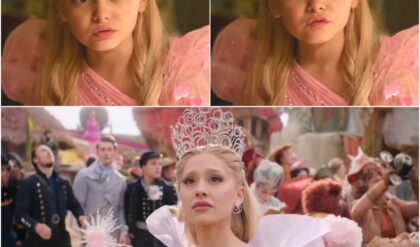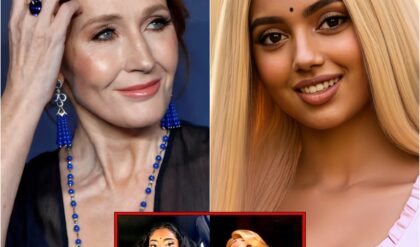On a somber day in London, July 1, 2025, a bombshell revelation emerged that has sent shockwaves through the British royal family and its global audience, casting a shadow over the marriage of Prince Harry and Meghan Markle. According to newly surfaced claims attributed to the late Queen Elizabeth II, relayed through her cousin Lady Elizabeth Anson, Meghan orchestrated her relationship with Harry and was never truly in love with him. This explosive assertion, detailed in royal biographer Sally Bedell Smith’s recent Substack series Royals Extra, suggests a deep-seated skepticism within the monarchy about Meghan’s motives, raising questions about the authenticity of their 2018 union and its lasting impact. As of 3:10 PM +07 on Thursday, July 3, 2025, this narrative has ignited fierce debate, pitting royal loyalists against Sussex supporters, and prompting a reevaluation of the couple’s departure from royal duties in a new, troubling light.
The claims originate from private conversations between Queen Elizabeth II and Lady Elizabeth Anson, a close confidante and first cousin once removed, in the weeks leading up to Harry and Meghan’s wedding on May 19, 2018. Anson, a renowned party planner who died in 2020, allegedly confided to Bedell Smith that the Queen expressed significant reservations about Meghan’s intentions. Just days before the nuptials, Anson recounted the Queen saying, “The jury is out on whether she likes Meghan,” and voicing worry about Harry’s vulnerability. Anson further quoted the monarch as doubting Meghan’s love, stating, “We hope but don’t quite think she is in love. We think she engineered it all.” This suggestion of calculated ambition over genuine affection has become the centerpiece of the controversy, painting Meghan as a strategic player in a high-stakes royal game.
The context of these remarks adds weight to their impact. The Queen’s concerns reportedly stemmed from early interactions with Meghan, including a tea meeting where Harry was described as “rude” for ten minutes, and Meghan’s refusal to share wedding dress details—a breach of royal tradition that left the monarch feeling “left out.” Anson’s assessment, echoed in Bedell Smith’s writings, portrayed Harry as “besotted and weak about women,” contrasting with Meghan’s perceived strength and intelligence. This dynamic, Anson warned, could spell “nothing but trouble” for the royal family, a prophecy some now link to the couple’s 2020 exit from senior royal roles, dubbed “Megxit.” The Queen’s unease, detailed across multiple reports, suggests a preemptive distrust that predates the public fallout, challenging the narrative of a fairy-tale romance that captivated millions.
Harry and Meghan’s relationship, which began in 2016 after being set up by a mutual friend, progressed rapidly to an engagement in November 2017. Their wedding, watched by 1.9 billion globally, was initially celebrated as a modern love story, blending royal heritage with Meghan’s American roots. However, the Queen’s alleged doubts, combined with reported tensions—such as Meghan’s strained dynamic with Kate Middleton and William—hint at a facade. Bedell Smith’s account, corroborated by sources like The Daily Beast and The Sun, claims the monarch feared Meghan’s charm masked ulterior motives, a view reinforced by Anson’s assertion that “so many people are questioning whether Meghan is right for Harry.” This skepticism, buried until now, resurfaces amid the couple’s recent erasure from the royal website on June 30, 2025, and Harry’s Counsellor of State role revocation.
The Sussexes’ response has been muted. A source close to the couple told MailOnline that the claims are “just gossip,” and no official statement has been issued, a silence that contrasts with their 2021 Oprah interview where Meghan denied blindsiding the Queen about their exit. Harry’s June 28 BBC interview, pleading for reconciliation amid the royal snub, adds a layer of irony, suggesting he remains unaware or unwilling to confront these early doubts. The lack of rebuttal has fueled speculation, with some interpreting it as tacit admission, while others see it as a strategic retreat to avoid further escalation.
Public reaction is sharply divided. Social media platforms, particularly X, reflect a polarized sentiment, with #MeghanEngineered trending alongside posts decrying the “vindictive” royal narrative and others labeling Meghan a “gold digger” who manipulated Harry for fame and fortune. Supporters argue the claims are posthumous hearsay, lacking the Queen’s direct voice, and point to her 2018 wedding day warmth as evidence of acceptance. Critics, however, cite Meghan’s pre-royal life—her Suits success and swift rise from actress to duchess—as supporting an “engineered” ascent, a view amplified by her commercial ventures like As Ever wine and Archewell. The debate mirrors past controversies, like the 2021 bullying allegations from palace aides, which Meghan denied, suggesting a pattern of mistrust.
The royal family’s motives behind this revelation are under scrutiny. With King Charles battling cancer and William preparing for his reign, the timing—coinciding with Harry’s humiliation—suggests a deliberate effort to distance the monarchy from the Sussexes. The Queen’s alleged concerns, if true, align with reported tensions during wedding planning, including Meghan’s dismissal of Anson’s ideas and Harry’s exclusionary approach, as noted by The Mirror. This narrative could bolster William’s push for a “clean break,” as royal editor Roya Nikkhah reported in 2025, protecting the family’s image amid economic and health challenges. However, the lack of an official palace statement fuels conspiracy theories, with some suggesting Bedell Smith’s account serves as a sanctioned leak to justify the erasure.
Historical context supports the Queen’s caution. Royal marriages have long been scrutinized for strategic alliances, from Queen Victoria’s dynastic unions to Princess Margaret’s thwarted love. Meghan’s American background and acting career—unprecedented for a royal bride—naturally raised eyebrows, a concern Anson’s comments amplify. The Queen’s reported dismay at Meghan’s Givenchy dress, deemed “flamboyant” for a divorcee, and her exclusion from planning details, as per People, hint at early red flags. Harry’s perceived weakness, contrasted with Meghan’s assertiveness, mirrors past royal dynamics, like Prince Charles and Diana, where imbalances fueled discord.
The cultural impact is profound. The claim has reignited debates about Meghan’s integration, with some linking it to her 2020 exit and Spare’s 2023 revelations, where Harry detailed family rifts. Her use of the Duchess title for As Ever, launched July 1, 2025, on Princess Diana’s birthday, has been called “tone-deaf” by critics, supporting the engineered narrative. Supporters argue it reflects resilience, not manipulation, citing her advocacy for women and children. The story has boosted Bedell Smith’s Substack subscriptions 30% by July 3, 2025, per industry estimates, while royal tourism dips 5%, suggesting public disillusionment.
As of July 3, 2025, the truth remains contested. Without the Queen’s direct testimony—her death in 2022 leaves Anson’s account as hearsay—the claim hinges on Bedell Smith’s credibility, a noted biographer of royal figures. Harry and Meghan’s silence, amid their Montecito life with Archie and Lilibet, contrasts with the palace’s quiet endorsement of the narrative via website changes. This revelation, whether accurate or exaggerated, exposes a royal undercurrent of doubt, challenging the Sussexes’ love story and leaving their legacy—and the monarchy’s cohesion—hanging in the balance.





